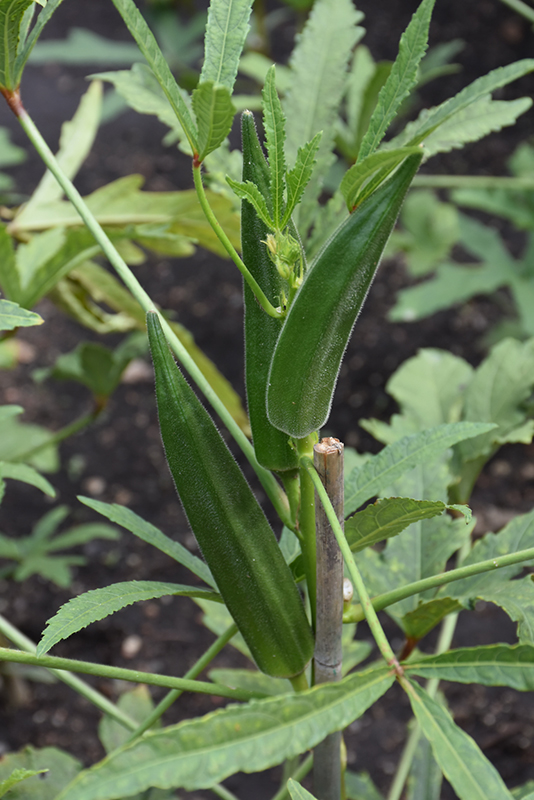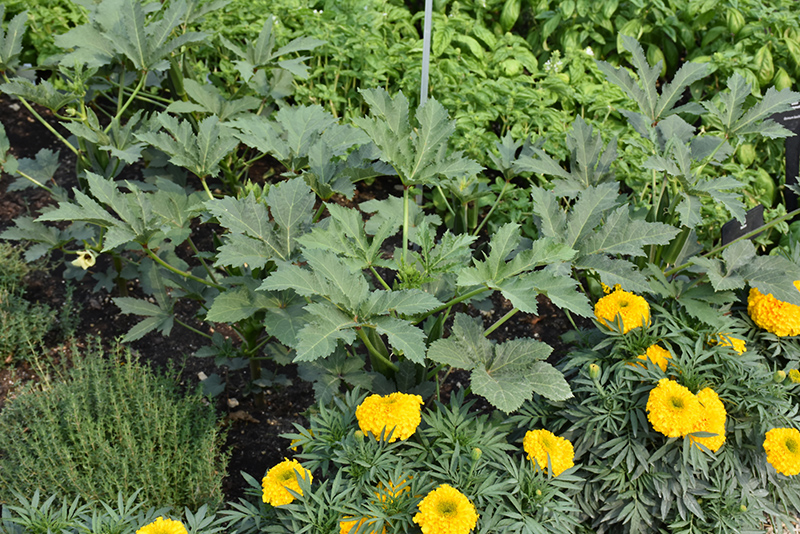
Plant Finder
Jambalaya Okra
Abelmoschus esculentus 'Jambalaya'
Height: 4 feet
Spacing: 18 inches
Sunlight:
![]()
Hardiness Zone: (annual)
Description:
A high-yielding, compact variety that can grow up to 4 feet in height; produces shiny, deep greed ribbed pods; mild and crunchy, great used in stews, gumbos, jambalaya and fried; harvest when pods are 4-5" long; excellent in small gardens and containers
Edible Qualities
Jambalaya Okra is an annual vegetable plant that is typically grown for its edible qualities. It produces olive green pointy pods which are harvested from mid summer to mid fall. The pods have a mild taste and a crunchy texture.
The pods are most often used in the following ways:
- Fresh Eating
- Eating When Cooked/Prepared
- Cooking
- Preserves
- Pickling
Planting & Growing
Jambalaya Okra will grow to be about 4 feet tall at maturity, with a spread of 3 feet. When planted in rows, individual plants should be spaced approximately 18 inches apart. Because of its vigorous growth habit, it may require staking or supplemental support. This fast-growing vegetable plant is an annual, which means that it will grow for one season in your garden and then die after producing a crop.
This plant is typically grown in a designated vegetable garden. It should only be grown in full sunlight. It does best in average to evenly moist conditions, but will not tolerate standing water. It is not particular as to soil pH, but grows best in rich soils. It is quite intolerant of urban pollution, therefore inner city or urban streetside plantings are best avoided. This is a selected variety of a species not originally from North America. It can be propagated by cuttings; however, as a cultivated variety, be aware that it may be subject to certain restrictions or prohibitions on propagation.
Jambalaya Okra is a good choice for the vegetable garden, but it is also well-suited for use in outdoor pots and containers. With its upright habit of growth, it is best suited for use as a 'thriller' in the 'spiller-thriller-filler' container combination; plant it near the center of the pot, surrounded by smaller plants and those that spill over the edges. It is even sizeable enough that it can be grown alone in a suitable container. Note that when growing plants in outdoor containers and baskets, they may require more frequent waterings than they would in the yard or garden.
This Plant Library is intended for informational purposes only, and is not an online store.

